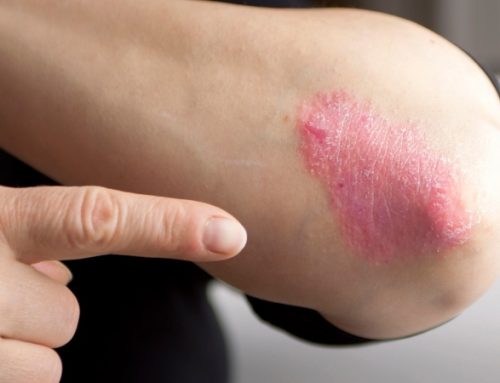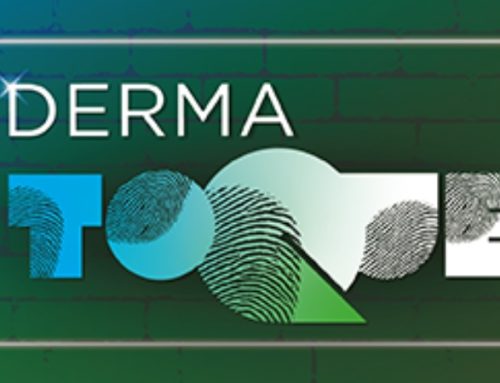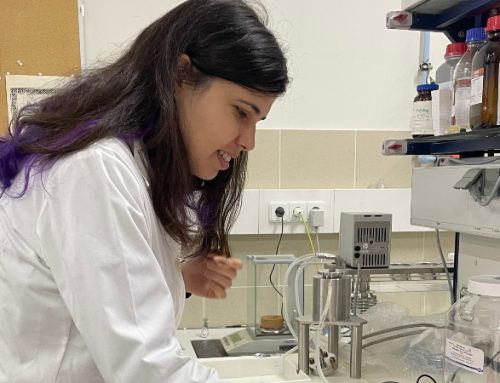Psoriasis and Alcohol: What’s the Link?
Psoriasis is an autoimmune disease that causes your immune system […]
Psoriasis is an autoimmune disease that causes your immune system to overproduce skin cells. Symptoms of psoriasis include thickened, red, scaly and itchy skin patches.
The exact cause of why people have psoriasis is unknown, although genetic factors appear to play a role. A person with psoriasis will find that it is worse at some times than others and that certain triggers can cause it to flare up.
The condition arises when skin cells reproduce too quickly. Skin cells normally reproduce every 28 to 30 days, but in plaque psoriasis, an overactive immune system means that they reproduce every 3 to 4 days. As they rise to the skin’s surface, the skin is unable to shed them quickly enough.
This causes the visible skin to appear thick and red and feel itchy.
According to the Cleveland Clinic, psoriasis affects about 2 to 3 percent of the population. It is most likely to affect people between the ages of 20 to 30 years and 50 to 60 years. It affects males and females equally. Around 30 percent of people with psoriasis also have psoriatic arthritis.
Causes and triggers for psoriasis
Psoriasis may flare up with different triggers.
Psoriasis has been linked to metabolic syndrome, which combines obesity, diabetes, high blood pressure, and cardiovascular disease.
A person with psoriasis can find that their condition varies. Psoriasis tends to flare up in response to certain triggers.
According to the National Psoriasis Foundation, the following have been linked to worsening psoriasis:
Stress can cause it to appear for the first time or to worsen
Injury to skin, due, for example, to sunburn, scratches or a vaccination
Certain medications
Infection, and especially strep throat in children
Some people find that dietary factors, the weather, and allergies can make their condition worse.
How does drinking alcohol affect psoriasis?
A number of skin problems have been linked to excess alcohol use, largely because of the damage caused by alcohol to various organ systems.
Examples include:
Spider angiomata, in which small, dilated blood vessels cluster near to the skin
Palmar erythema, which is a reddening of the skin on the palms of the hands
Pruritis, which causes the skin to feel itchy
Bacterial and fungal skin infections are also more common among people who drink large amounts of alcohol. Causes of bacterial infection in such patients include Group A streptococci, Corynebacterium, and Staphylococcus aureus.
It has also been suggested that excessive alcohol consumption may aggravate the symptoms of psoriasis.
The National Institute on Alcohol Abuse and Alcoholism note that alcohol can have a “detrimental effect” on psoriasis, especially among males.
While research has not confirmed a link between alcohol and psoriasis, there is evidence that people that consume alcohol have a greater likelihood of having psoriasis than the general population.
A study of 82,869 women over a period of 14 years showed that women who consume more than 2 to 3 alcoholic beverages in a week are more likely to experience the onset of psoriasis.
Bottles and glasses of alcohol
Alcohol consumption may affect people in different ways.
Consuming “non-light beer” also appeared to aggravate the risk in females.
Men who consume more than 100 grams per day of alcohol consumption were more likely to have a new case of psoriasis or to experience a worsening of the symptoms.
Studies have noted that when psoriasis emerges in people who drink large amounts of alcohol, it tends to affect the backs of the hands and the fingers. This is similar to symptoms experienced by people with HIV.
For this reason, experts believe there may be a link between alcohol, immune dysfunction, and psoriasis.
Alcohol may also increase the production of inflammatory cytokines and cell cycle activators, say the NIAAA. This could then cause the skin cells to regenerate excessively.
People who consume excessive amounts of alcohol may also be less likely to adhere to their treatment plan, and this, too, can lead to a more severe progression of the disease. Alcohol consumption may also decrease the body’s ability to process medications effectively.
In women of child-bearing age, the medications used for psoriasis may have hazardous side effects when consumed with alcohol.
Alcohol consumption also leads to dehydration and vitamin deficiency. This includes vitamins B, E and A. Good hydration and a sufficient supply of vitamins are needed for healthy skin, regardless of whether a person has psoriasis or not. For someone with psoriasis, a lack of hydration and essential vitamins further reduces the chance of healthy skin.
Finally, apart from potentially reducing the body’s immune function, regular alcohol consumption can have a detrimental effect on other organs, such as the liver, and this, too, can impact the immune system, weakening its ability to cope with further problems.
























